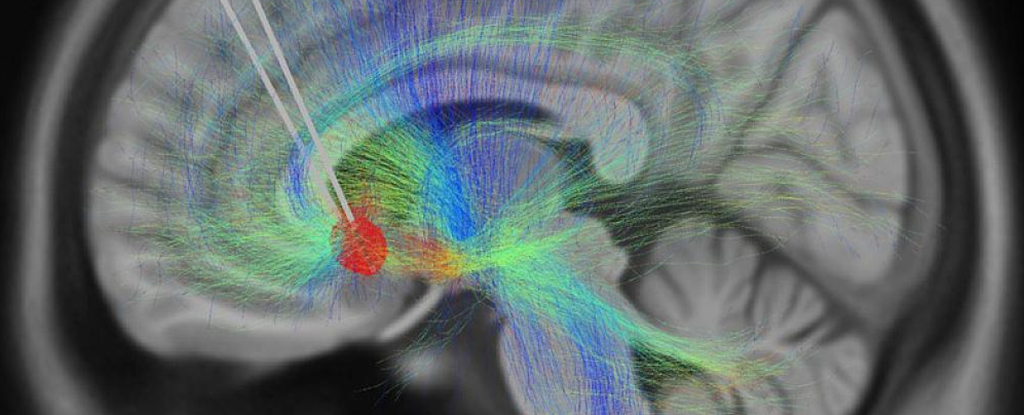New Breakthrough: AI Helps Track Depression Recovery with Deep Brain Stimulation
In an exciting new study, scientists have found a way to track the effectiveness of deep brain stimulation (DBS) therapy in treating depression using artificial intelligence (AI). DBS therapy involves stimulating the brain to alleviate symptoms of depression, but accurately measuring its success has proven challenging. Traditional methods rely on patients self-reporting their mood, which can be influenced by various factors. However, this breakthrough study utilized a combination of electrode implants and AI analysis to pinpoint changes in brain activity patterns associated with DBS treatment.
The researchers, from the Georgia Institute of Technology, the Emory University School of Medicine, and the Icahn School of Medicine at Mount Sinai, identified a potential biomarker linked to recovery from depression. By analyzing brain scans, the AI algorithm was able to predict with over 90% accuracy whether DBS therapy was working or not. This objective, neurological signal could be invaluable for clinicians in determining when to adjust or continue with treatment.
Moreover, the AI was trained using brain images before and after treatment, enabling it to identify subtle neurological differences that the human eye may miss. For example, the algorithm detected a recovery signal that disappeared a month before a patient’s relapse. Armed with this knowledge, doctors could adjust treatment sooner and potentially prevent a relapse.
Although there is still more work to be done, this breakthrough could revolutionize the way depression is monitored and treated. By providing a more accurate and objective measurement of a patient’s progress, doctors can tailor treatments to each individual’s needs. This study also provides a platform for understanding the variations between patients, which is crucial for treating complex psychiatric disorders like treatment-resistant depression.
With this promising development, could we soon have the ability to measure depression levels as easily as we measure blood pressure? Share your thoughts and comments below on this groundbreaking research!
IntelliPrompt curated this article: Read the full story at the original source by clicking here a fun game: sprunki horror

